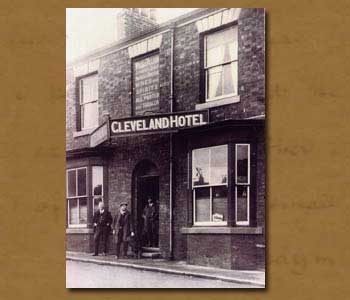Normanby - the Last Decade of 19th Century
Introduction
Most of the male inhabitants worked in either the iron/steel industry or in one of the local mines.
1890
In the early part of the year there was a typhoid epidemic in the area. The Normanby Board gave out handbills advising the population to boil all their milk and water.
Notice served on Cargo Fleet Iron Company to attend to defective spouting on houses 47-63 West Street.
In July Normanby celebrated the
safe return
from Australia of Mr Ward-Jackson.
Reports that Eston Board intended to take Normanby Board to court over the
pollution of Crossbeck .
There was a controversy at Normanby School - the teachers were accused of
excessive corporal punishment.
1891
In April of this year there was a proposal to reduce miners wages by 10% - they had already been reduced by 5% a short time previously.
April 15th the census was taken. Normanby had many shops & trades, Butchers, Grocers, Shoe Makers, Shoe Dealers & Coal Dealers. The vicar of Eston who lived in Normanby was Edward Besley. Landlords of pubs: Lambton Arms - Thomas Fleming, Cleveland Hotel - Michael Hobson, Poverina Hotel - Mary Wilson, Woodman Arms - Robert Taylor. William Wyrill was the village policeman - he was posted to Swainby later in the decade. Horatio Taylor who lived in Normanby Mill was a Blacksmith & Corn Grinder - tragedy struck the family later in the year when one of his children aged 3 years died after being burnt.
Free School Act - prior to this time pupils paid 1d (0.4p) per week.











